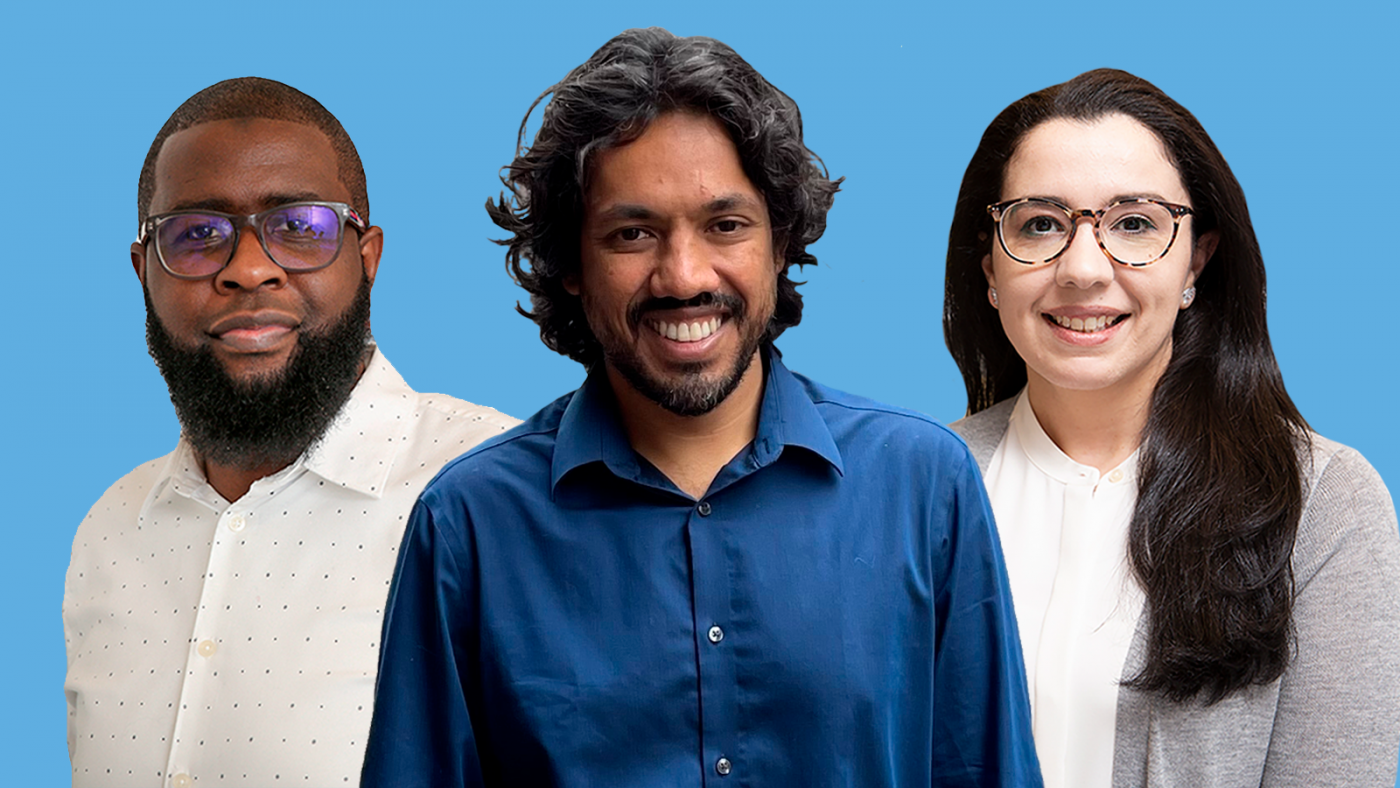NEW YORK – How does the brain make sense of what we see? What are the neurobiological bases for painful and pleasurable touch? How do we evaluate the actions of others? These are among the far-reaching scientific questions being investigated by Yasmine El-Shamayleh, PhD, Ishmail Abdus-Saboor, PhD and Vikram Gadagkar, PhD, respectively.
Today, the McKnight Foundation named these three principal investigators at Columbia’s Zuckerman Institute among this year’s recipients of the McKnight Scholar Awards. This is the first time since the inception of the program in 1977 that three scientists from the same institute have been named in a single year. Each new McKnight Scholar receives $225,000 of research support over three years.
As described by the McKnight Foundation, the program supports “exceptional young scientists who are in the early stages of establishing an independent laboratory and research career.” It bolsters researchers who “demonstrate their ability to solve significant problems in neuroscience … to foster the commitment by these scientists to research careers that will have an important impact on the study of the brain.” It also “seeks to support scientists committed to mentoring neuroscientists from underrepresented groups at all levels of training.”
Dr. El-Shamayleh's research tackles how the brain perceives the shapes of visual objects. "Akin to letters of the alphabet, higher areas of the visual cortex contain neurons that prefer, for example, different curvatures in objects,” she explains. “Different combinations of these neurons can be used to represent any object in the world.” Dr. El-Shamayleh is also an assistant professor of neuroscience at Columbia’s Vagelos College of Physicians and Surgeons. She wants to discover how distinct elements of cortical circuits govern our ability to perceive and recognize objects.
Dr. Abdus-Saboor, an assistant professor of biological sciences at Columbia’s School of Arts and Sciences, has been opening new ground in sensory science by uncovering skin-to-brain circuits that underlie rewarding social touch. "We want to uncover and understand important skin-to-brain neural circuitry all the way from the molecular mechanisms that enable detection of sensory signals, to the neural circuits that process those signals, to the behaviors they elicit,” Dr. Abdus-Saboor said. His work with rodents aims to shed new insights on the untapped potential of targeting the peripheral nervous system to enhance social reward.
Dr. Gadagkar’s research centers on how the brain learns and hones skills. A deeper cellular and neurochemical understanding of these processes could provide leads for treating diseases such as Parkinson’s. His work with songbirds is unusual because it explores not only how young male finches learn mating songs, but also how female finches evaluate the songs of their would-be suitors. “Ultimately, we want to understand how we learn, how we express these learned behaviors and how we evaluate the behaviors of others,” said Dr. Gadagkar, an assistant professor of neuroscience at Columbia’s Vagelos College of Physicians and Surgeons.
